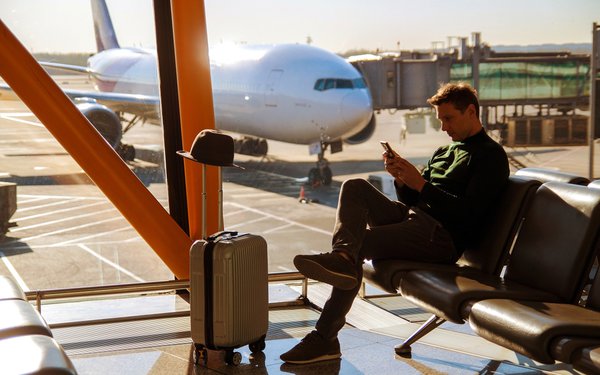
AT&T and Verizon will again delay plans to roll out
ultra-fast 5G service near some airports, in response to the airline industry's warning that the broadband service could interfere with flights.
“At our sole discretion we have
voluntarily agreed to temporarily defer turning on a limited number of towers around certain airport runways as we continue to work with the aviation industry and the FAA [Federal Aviation
Administration] to provide further information about our 5G deployment, since they have not utilized the two years they’ve had to responsibly plan for this deployment,” the company stated
Tuesday.
A Verizon spokesperson also said the company has “voluntarily decided to limit our 5G network around airports.”
The spokesperson added that the FAA and
airlines “have not been able to fully resolve navigating 5G around airports, despite it being safe and fully operational in more than 40 other countries.”
advertisement
advertisement
AT&T and
Verizon had been scheduled to begin deploying the fifth-generation mobile service on Wednesday, after previously agreeing to a two-week postponement.
Both telecoms are still moving forward
with the launch of 5G in areas that are not near a limited number of airports flagged by the FAA.
The company's move came one day after the aviation industry group Airlines for America warned
of “significant” disruption, if the telecoms deployed 5G within two miles of certain airport runways.
“Immediate intervention is needed to avoid significant operational
disruption to air passengers, shippers, supply chain and delivery of needed medical supplies,” operational disruption to air passengers, shippers, supply chain and delivery of medical
supplies,” the organization said in a letter to Transportation Secretary Pete Buttigieg, National Economic Council Director Brian Deese, Federal Communications Commissioner Jessica Rosenworcel
and Federal Aviation Administration Administrator Stephen Dickson.
This latest postponement follows more than two months of conflict that pit the FCC, AT&T and Verizon against the FAA and
airlines.
The FCC voted in 2020 to free portions of the C-Band spectrum for 5G for mobile broadband, and issued rules aimed at preventing interference with aviation equipment. But the Federal
Aviation Administration, warned in November that the planned 5G service could
potentially affect altimeters -- devices that determine altitude based on radio waves.
Late last month, the aviation industry group Airlines for America filed an “emergency
petition” asking the FCC to stay its 2020 order. The pilots union supported that request, arguing that airplanes' “margin of safety” would be degraded by the planned 5G service.
AT&T and Verizon have argued that their use of the C-Band won't interfere with airline equipment.
“Spectrum interference disputes typically involve simultaneous transmissions on
the same frequencies. But radio altimeters do not operate on, or anywhere near, the C-Band frequencies,” the companies said earlier this month.